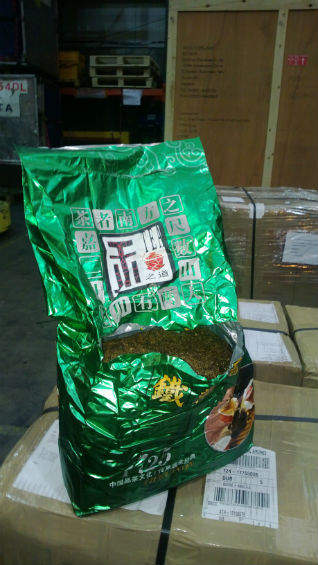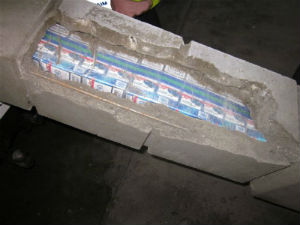Revenue’s fight against organised crime

Organised crime takes on a central part in the illicit trade game both nationally and internationally. Michael McGill from the Revenue Central Investigation Unit discusses how the organisation is adopting a multi-faceted approach to combat this threat.
5 December 2013
The level of organised crime within Europe has seen a significant growth in recent years. Organised criminal gangs within Ireland are well known to the Revenue Commissioners and gardaí. The members of these gangs, who deal in smuggled tobacco products, fuel laundering and counterfeit alcohol, could be second or third generation and often have paramilitary links. Only last year, the Sunday Independent reported the discovery of a container of cigarettes, destined for Ireland, that came from Vietnam. These cigarettes, bought for 20 cents a packet, were tracked to the border where former IRA members were running one of Europe’s biggest cigarette smuggling rings. This group were reported to be making profits of €3 million a week.
The link to organised crime
"All of what we do is linked to organised crime. One of our briefs is tobacco and you would have five or six large organised crime groups – mainly border based that would control the importation and the movement. There would also be similar groups working on fuel laundries around the same area. These are organised criminals with national and international links. These people control a lot of this trade, particularly the larger scale activities," McGill says.

Most illicit cigarettes are not sourced in the EU
Global problem
These criminals will work where they can make profits. Ireland’s high level of tax on alcohol, fuel and tobacco does make the country an attractive market. Ireland is one of the higher taxed alcohol states in Europe and has the highest price of cigarettes in Europe. There is also a significant profit to be made where fuel is concerned and it remains one of the biggest problems between the Republic of Ireland, Northern Ireland and Britain.
However, while alcohol is by and large an intra EU problem, tobacco has a global element to it. "Most of the cigarettes we deal with would be sourced out of the EU. Most would come from the Far East, the UAE, Egypt and China so there is a slightly different dimension to each product but at the end of the day the one common denominator is money."
With the increase on cigarettes and alcohol in this year’s budget it may provide an additional boost to the illicit trade. However McGill is confident there are good systems and procedures in place to ensure this won’t happen.
"We always look at a group in a holistic fashion and we take a multi-agency approach to it. We inspect every aspect of it, for example, where the money is going. The money trail is very important. We want to identify where it’s going because if we can get our hands on the cash we can look at taxing that as well. It is hard to follow but we have techniques. The way internet banking has changed, it is much more difficult."
"We have developed strategies to deal with oil, alcohol and cigarettes and we have put them in place. There is a high level group that sits, chaired by the commissioner, and monitors as we go along to see how we’re doing. We are hugely conscious of the problem and the scale of the problem."
Tobacco problem has been contained
But the question remains – are the strategies working? Are the criminals being caught? Is the volume of illicit trade on the market reducing? "We have taken a very scientific approach to looking at the market here. We have commissioned a company to conduct a survey for us. There are a lot of packs you’ll find on the street that are legitimately here from travellers bringing back the legal amount. We would say that there is about 7% of the market here legitimately based on scientific surveys over the last three years."
The survey commissioned by Revenue and the Office of Tobacco Control in 2009 estimated that 20% of cigarettes consumed in the State had not been taxed in this jurisdiction. This figure was further broken down as 14% illicit product and 6% legally imported by passengers arriving into the State from other jurisdictions. A similar survey in 2010 and 2011 estimated that the number of illegal packs consumed remained at 15% for both years indicating that Revenue has at least contained the situation. Legal non-Irish-duty-paid was at 9% and 8% respectively, bringing the total figure of non-Irish-duty-paid tobacco to 24% and 23% in 2010 and 2011. However, ITMAC which uses MS Intelligence to carry out its surveys estimates the figure for non-Irish-duty-paid tobacco was much higher, at 27.9% for the second quarter of 2013. That’s up from 26.6% in the fourth quarter of 2012.

Industry specific problems
On this topic, McGill adds: "We have invested in x-ray machines and brought in additional scanners but we have to look at where we are in the current economic environment. Of course we could do with more scanners or staff but that’s just one aspect. Even with additional scanners, if we were to start scanning all the containers that came through Dublin port each day the legitimate trade would stop. A lot of the work we have to do must be intelligence driven."
European level
Europe is increasing efforts to bring in long term strategies, tighter controls and a clamp down. For the first time this year all the member states have started developing strategic plans at a European level for all countries so future working plans will come out of that. Ireland won’t be just doing its own thing. These European strategies will cover all aspects from alcohol, cigarettes and tobacco. Attempts are being made to tackle this issue at these higher levels.



 Print
Print






Fans 0
Followers